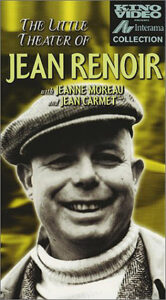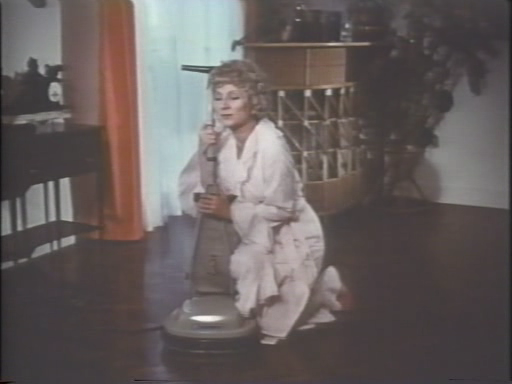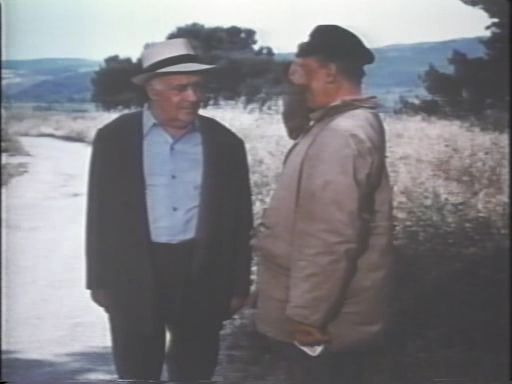Little Theatre of Jean Renoir, The (1970)
“Nothing is more exciting than other people’s troubles… They make life bearable.”
|
Synopsis: |
|
Genres, Themes, Actors, and Directors:
Review: The second story — dubbed by Renoir an “opera” of sorts — involves a chorus of singing onlookers commenting on the marital woes of Emilie (Marguerite Cassan) and Gustave (Pierre Olaf). Shrewish Emilie (who surely has OCD) insists that an immaculate floor is what every housewife yearns for, and threatens to go live with her mother unless her henpecked husband gives in to her request for a personal floor waxer; when he does, circumstances eventually become more and more untenable, until Emilie finally makes the ultimate sacrifice for her beloved new tool. It’s an openly satirical, strangely satisfying little morsel about the dangers inherent in loving machines more than humans. At this point, Renoir proudly announces that Jeanne Moreau will sing a song — which she does, shakily and to minimal effect; it’s best ignored altogether, and fortunately lasts just a few minutes. The final vignette may be the most heartfelt and personal of the bunch. In it, Renoir tells the story of an elderly villager (Fernand Sardou) who is deeply in love with his beautiful younger wife (Francoise Arnoul), and she with him — but she’s feeling oddly restless and dissatisfied. When she realizes than an affair is exactly what she needs to satisfy her “itch”, she turns to a visiting doctor (Jean Carnet) who is equally smitten with both her and the gentle Sardou. Much like in Bertrand Blier’s Oscar-winning Get Out Your Handkerchiefs (1978), this vignette lovingly demonstrates that a willingness to flout societal norms can lead to unexpected happiness in love and romance. It’s a fitting capstone to Renoir’s long and illustrious career as a filmmaker. Redeeming Qualities and Moments: Must See? Links: |




One thought on “Little Theatre of Jean Renoir, The (1970)”
First viewing. Not a must.
It’s no surprise if I have little ‘reverence’ for swan songs, per se. Although the subject of swan songs remains an interesting one for me, I still look at films as individual films.
All ffs have their favorite directors, and some will swear by a director’s work no matter what, out of loyalty. I’m not like that. My favorite, of course, is John Huston – but when he was bad, it was rare but he was bad.
When we look at the final work of high-profile directors, we see certain differences: some went into obvious decline due to being too set in their ways (i.e., Hawks); some continued to challenge themselves fiercely as they got up in years (i.e., Bergman, with ‘Fanny and Alexander’, etc.); some gave us swan songs without realizing they were swan songs (i.e., Kieslowski’s ‘Three Colors: Blue, White and Red’); and some seemed to sense the end coming and apparently pushed the attempt to go out on a high note (i.e., Hitchcock’s ‘Family Plot’, Huston’s ‘The Dead’).
Renoir is certainly high-profile. But ‘The Little Theatre…’ is not overall a memorable film. It’s overly precious, droll, with flourishes of satisfying moments. It’s not a horrible film, and not a total waste of time, but it’s not a film I would ever encourage an ff to seek out. That said, those who hold Renoir in particular high regard will no doubt appreciate his delicacy and his vestige of charm.